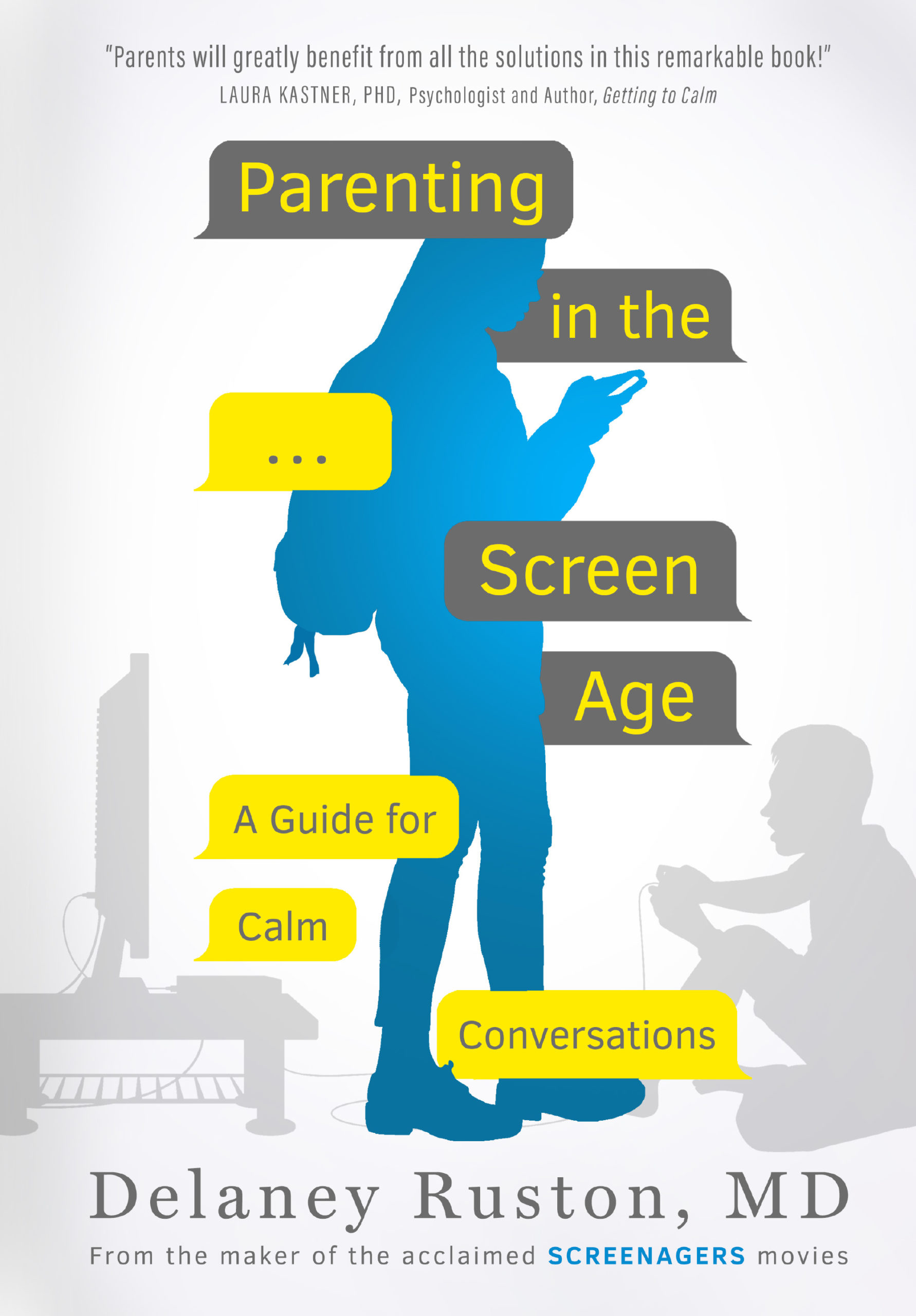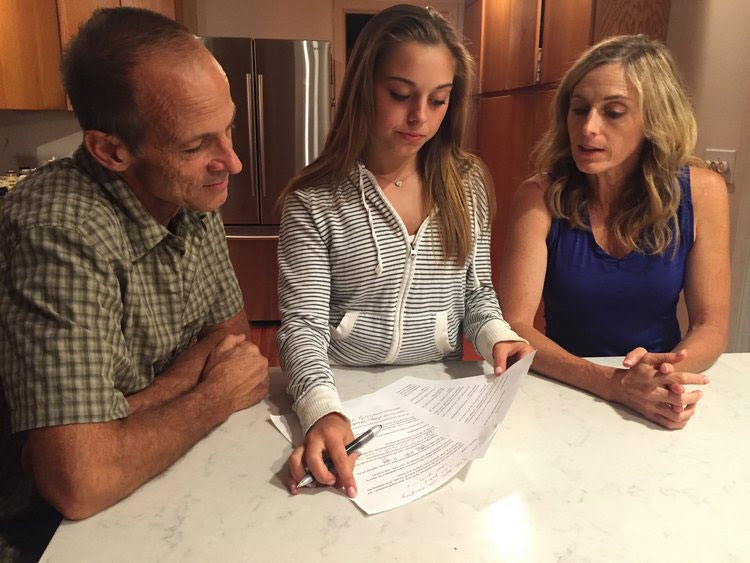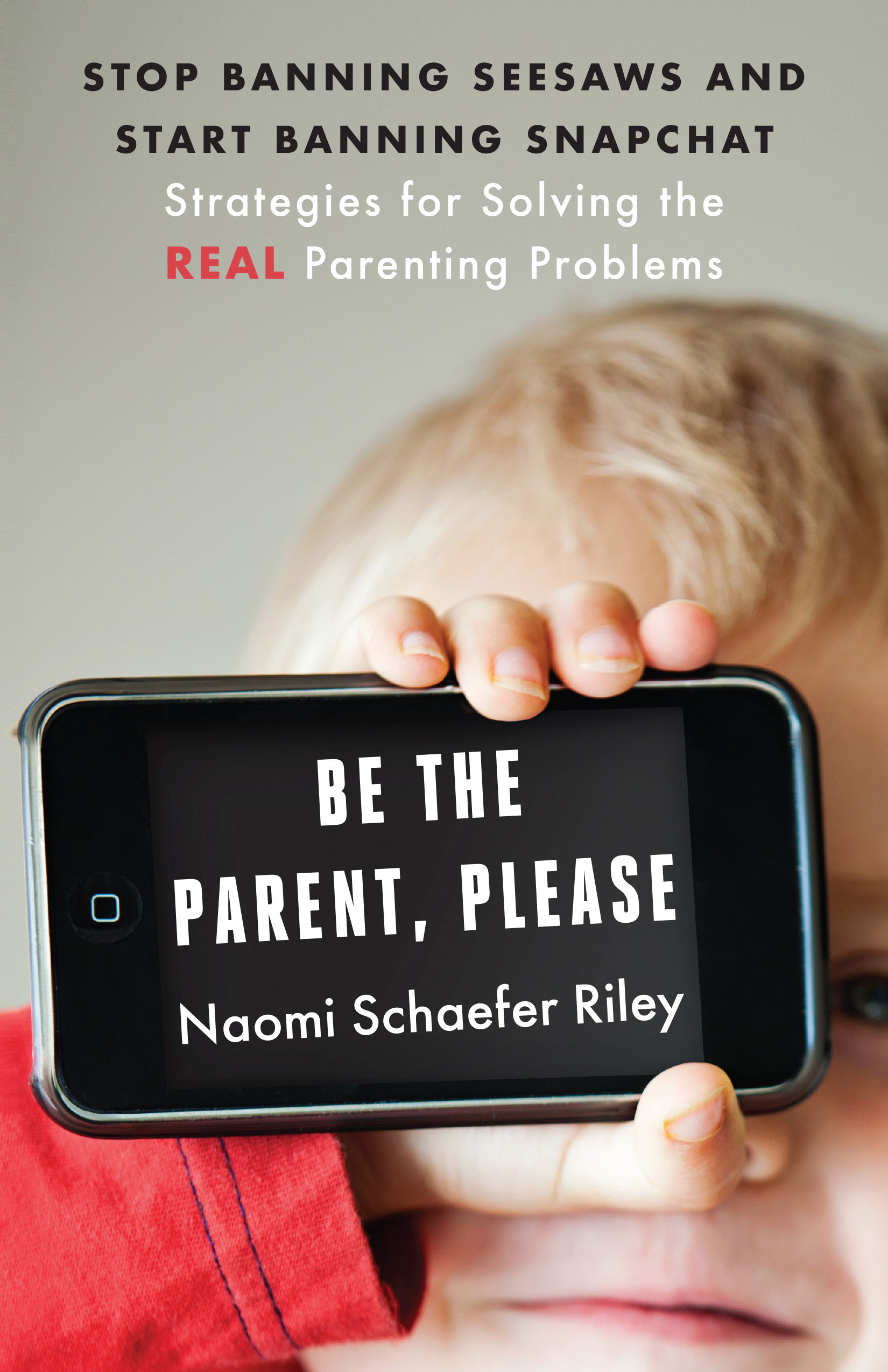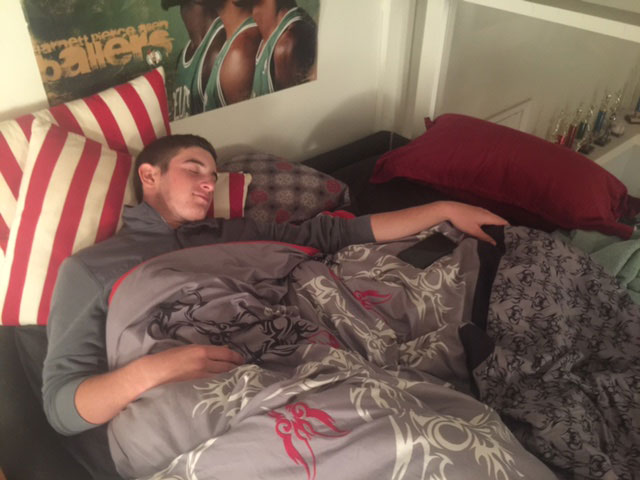Whose kids aren’t overdosing on tech during the pandemic? Zoom school, Zoom activities, Zoom get togethers, who is Zoom’ed out? We’ve always known to try to moderate tech, especially for young, developing brains, but it is harder than ever with the circumstances we’re all facing. Delaney Ruston, MD, recently published a very timely book, Parenting in the Screen Age: A Guide for Calm Conversations. She shares some of her top tips here at The Lounge to help parents navigate screens with their kids.
- Bring up screen time without making your child or teen defensive
My approach used to be to use a scare tactic about social media and screen time issues with teens, but teens already see so many scary headlines out there. Teens tell me all the time, “adults just don’t get it,” and thus, they, like my kids, would not engage around screen time topics. Once I learned the art of validation, productive conversations started to happen. We talked more often about the positives of our tech revolution, and from there, how to work together to ensure time off screens and healthier screen time choices.
- Talk through difficult issues like online social cruelty, sexting, and mental health
The research shows that 90% of teens go online to look up health-related information, such as stress and depression. And of those with depression, 90% look up depression. Yet, we know they can get information that can lead them into risky coping skills. We, parents, can no longer not talk about things like mental health. Learning what to talk about in regards to mental health and talking about healthy coping skills is paramount. One effective way to do this is for parents to talk about their feelings and how they address them. For example, a father who learns how to talk about the sadness he feels from no longer seeing people at work and how he decides to commit to once a week doing Facetime calls with a friend.
- Engage your child in creating boundaries around Netflix, video gaming, and social media
My husband kept saying to me early on, as we were raising kids who wanted more and more screen time is, “They just need to learn on their own.” Yet, I kept thinking, “Hmm, but their friends want them online, the tech companies want them online, and there are a thousand things they want to do online — games and video — so aren’t we setting them up for failure?” Since then, I have met many parents who had that same mindset until I start talking with them about the pulls of screens, and why that point about learning on one’s own is a valid point for many things we want our kids to master, but not so much for screen time.
There are effective ways to work with our kids to create boundaries. One is to have everyone share a few values that are important to them. My daughter will say how important it is that she gets undistracted time with her older brother. She also talks about how she values communicating with friends over social media. As a parent, I tell my kids that I really value parenting with integrity and for me that is using science to know the best ways I can help them grow up most healthily. All the science shows that devices out of the bedroom during sleep time have a major positive impact of quality and quantity of sleep — so my kids have had that rule. But I VALUE their input. So, we have worked to hear their input on rules determining the time devices go away at night.
- Have screen time limits that actually work–with less of the sneaking or arguing
A lot of the teaching to parents has been things like “Make sure you know your teens’ passwords to their social media accounts.” The reality is that once a cat and mouse dynamic gets set up, any teen that wants distance from the parents will always win that game. It is very easy to set up secondary hidden accounts. For those kids who are just getting social media accounts, I suggest letting them know that you understand drama-type issues can happen online and that you are not there to punish them. Instead, you are there to work with them. In that dynamic, they will be more inclined to come to you if there is a problem.
Editor’s Note: Great intel as always Delaney! Check out her book, Parenting in the Screen Age: A Guide for Calm Conversations, for more info. And if you haven’t seen Screenagers, I noticed they’re offering virtual screenings during COVID-19. It’s an incredible documentary that will really make you think about screens and teens. Info here.
Also, for holidays & birthdays, check out 20 Non-Tech Gift Ideas from Delaney & team.







Leave A Comment